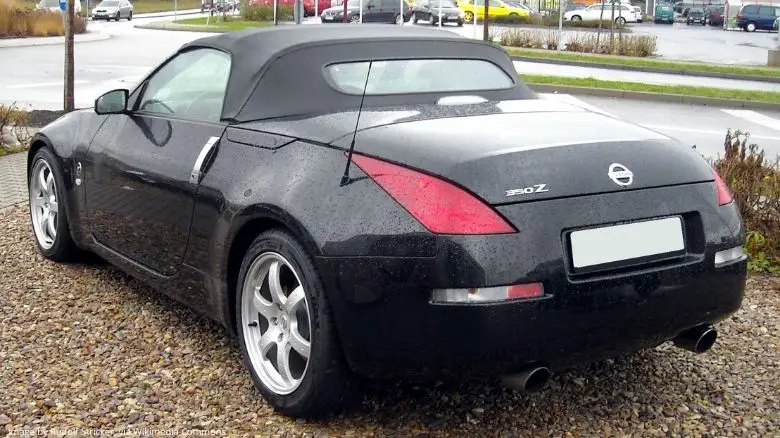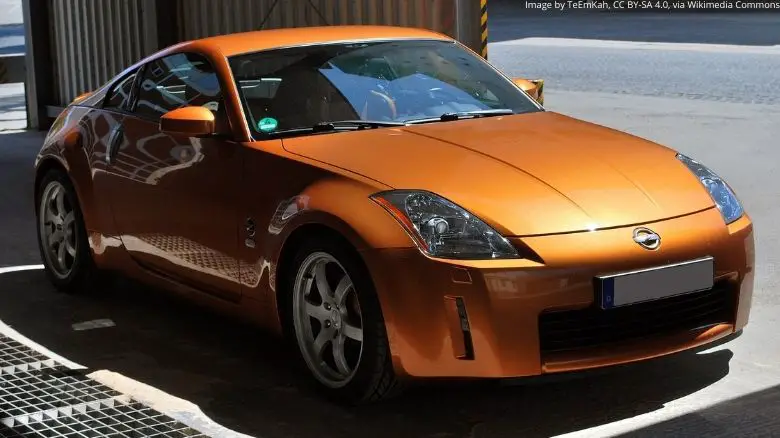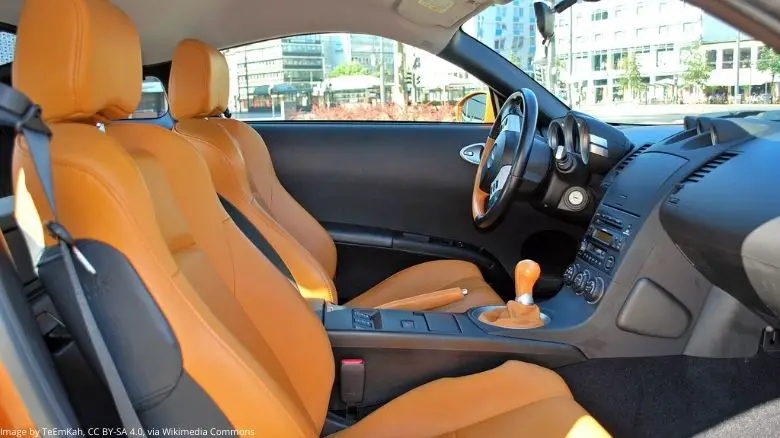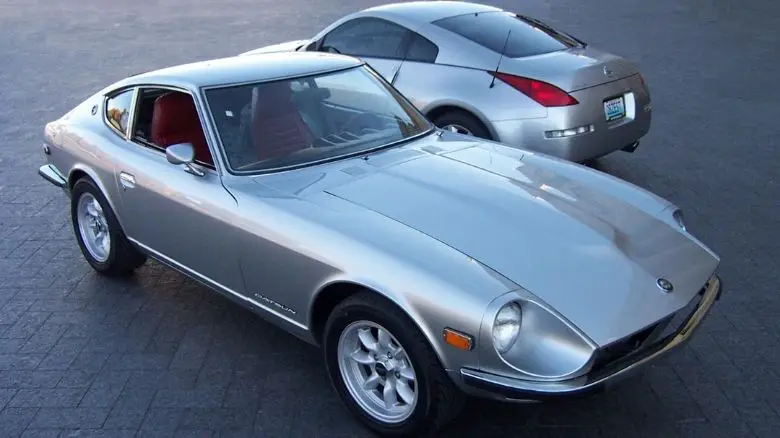Will the Nissan 350Z Become a Classic?

Adam
Founder, The Car Investor
The Nissan 350Z's history can be traced all the way back to the 1960s when the game-changing 240Z was brought to the market.
This iconic sports car is widely considered to be one of the most influential vehicles in modern day motoring history, and paved the way for the long line of Z-Cars that we've seen since.
The 350Z, named the Fairlady Z (Z33) in Japan, was introduced in 2003 and was the fifth model to bear the 'Z' badge, if you include the throwback 240Z concept car of the '90s. It's still popular among car enthusiasts for its sleek design, excellent handling, and powerful engine.
So will its pedigree and performance alone be enough to make the Nissan 350Z a classic?
The Nissan 350Z has already begun its transition to classic status thanks to its popularity amongst Japanese performance car fans, excellent performance credentials, stylish looks, and surprisingly reasonable maintenance costs.
Market dynamics since 2021 have confirmed its appreciation trajectory, making it one of the strongest performers in the affordable sports car segment.
It has demonstrated real appreciation potential, but can it keep pace with today's modern sports cars, and can it be used as a daily driver?
Nissan 350Z performance and specs
The 350Z was powered by a naturally aspirated 3.5-liter V6 that delivered increasingly impressive power outputs throughout its production run. Early models produced 287 horsepower, rising to 306 horsepower by 2007, with various incremental improvements between.
Later models achieved 0-60 mph in just 5.2 seconds with a top speed of 155 mph—figures that remain competitive with many contemporary sports cars. This performance capability ensures the 350Z can hold its own against modern alternatives while offering the increasingly rare naturally aspirated experience.
Transmission options included a precise six-speed manual or five-speed automatic, with the manual transmission now commanding significant premiums as rowing your own gears becomes increasingly rare in performance cars.
Both coupe and roadster variants received positive reception from press and public alike, with many praising the excellent handling dynamics and engaging driving experience. The roadster provided one of the more involving convertible experiences available during its era.

The combination of accessible performance and Z-car heritage created immediate appeal that has only strengthened as the automotive landscape moves toward electrification and automation.
Are Nissan 350Zs reliable?
Advertisement
The Nissan 350Z demonstrates exceptional reliability for a performance car, with the robust VQ35DE/HR engines proving remarkably durable when properly maintained. This reliability foundation supports classic car viability by ensuring affordable long-term ownership.
Major mechanical issues remain rare, with most problems consisting of manageable maintenance items rather than catastrophic failures. This dependability distinguishes the 350Z from many European alternatives that require significantly more intensive care.
Common maintenance considerations include:
Oil consumption monitoring (normal for high-performance engines)
Carbon buildup on throttle bodies
Driveshaft noise in higher-mileage examples
Fuel damper replacement
Timing chain guide and tensioner maintenance
Exhaust system attention
Standard wear items (shocks, clutch) requiring replacement based on driving style
Later models (2007-2009) demonstrate even better reliability than early cars, making them particularly attractive for buyers prioritizing dependability alongside performance.
Longevity expectations exceed 200,000 miles with proper care, supporting both daily use and long-term investment potential.
Are Nissan 350Zs cheap to maintain?
The 350Z offers remarkably affordable maintenance for a performance car, thanks to widespread parts availability, straightforward servicing requirements, and extensive Nissan dealer networks globally.
Parts sharing with mainstream Nissan models creates unusual economies of scale, making the 350Z nearly as inexpensive to maintain as conventional cars despite its performance capabilities.
Service accessibility benefits from simple, well-documented systems that most competent mechanics can address without exotic tools or specialized knowledge.
This maintenance affordability represents a significant advantage over European alternatives that often require specialist knowledge and premium-priced components for routine servicing.
Independent specialist networks provide even greater cost savings while often delivering superior service quality compared to main dealers, further enhancing ownership economics.
Is a 350Z a good daily driver?
Advertisement
The Nissan 350Z functions excellently as daily transportation for those accepting its two-seat configuration and limited storage capacity. Many owners successfully combine investment potential with regular use.

Practical considerations include:
Firm suspension creating sporty but occasionally harsh ride quality
Limited luggage space restricting cargo capacity
Two-seat configuration eliminating rear passenger capability
Responsive steering and handling maintaining engagement even in mundane driving
Fuel economy ranges from 20-30 mpg depending on driving style and conditions—reasonable for a 3.5-liter V6 performance car but requiring budget consideration for high-mileage users.
Daily driving viability makes the 350Z particularly attractive for enthusiasts seeking cars they can enjoy regularly while potentially benefiting from appreciation.
Are Nissan 350Zs going up in value?
Market dynamics shifted dramatically in 2021 when sustained depreciation reversed into clear appreciation trends that continue strengthening. Quality examples now command significantly higher prices than just a few years ago.
Current pricing reflects growing recognition of the 350Z's significance as potentially the last affordable, naturally aspirated sports car from a major manufacturer. This realization has driven steady demand increases across all markets.
Appreciation patterns show particular strength for:
Manual transmission examples
Lower mileage, well-maintained cars
Original, unmodified examples
Later model years with improved reliability
Early buyers who recognized the 350Z's potential have already realized substantial returns, though current pricing still offers reasonable entry points for committed enthusiasts.
Is the Nissan 350Z worth buying?
Advertisement
The 350Z represents exceptional value for buyers seeking genuine performance car experiences at accessible pricing points.
The combination of reliability, performance, and appreciation potential creates compelling ownership propositions.

Value advantages include:
Porsche-level performance at fraction of Porsche pricing
Affordable maintenance unusual for performance cars
Strong appreciation trends supporting investment objectives
Daily usability enabling regular enjoyment
Head-turning design that ages gracefully
Interior simplicity focuses on essential elements rather than luxury appointments, creating purposeful environments that enhance the driving experience rather than distracting from it.
The 350Z continues representing one of the best choices for affordable performance with genuine classic potential, particularly for buyers willing to act before further appreciation prices out casual enthusiasts.
Is the 350Z a future classic?
The Nissan 350Z has already achieved early classic status rather than merely showing future potential. Market recognition, cultural significance, and technical attributes have combined to establish clear collectible credentials.
How rare is a 350Z?
Global production totaled approximately 161,878 units for North America and 23,030 for Europe—substantial numbers that initially suggested the car might remain too common for classic status.
However, market reality shows increasing difficulty finding quality, original examples as many have been modified, neglected, or removed from circulation through accidents. This natural attrition creates the scarcity that drives classic car appreciation.
Well-maintained, original examples have become genuinely rare in today's marketplace, particularly manual transmission cars with comprehensive service histories.
What unique traits does the 350Z have?

Z-car heritage provides immediate credibility through connection to the legendary 240Z and subsequent models that established Japanese sports car credibility globally.
Design excellence creates timeless proportions that age gracefully while maintaining distinctive presence on modern roads.
Performance positioning offered genuine alternatives to Porsche Boxsters and BMW Z4s while providing superior power-to-price ratios than Audi TT alternatives.
Naturally aspirated V6 delivers increasingly rare linear power delivery and authentic engine sounds that modern turbocharged alternatives cannot replicate.
Is the 350Z fashionable?
The 350Z has maintained consistent appeal throughout its lifecycle, never falling into the unfashionable category that affects many sports cars during their depreciation years.
Cultural significance was cemented through appearances in The Fast and the Furious: Tokyo Drift and other films, influencing an entire generation of automotive enthusiasts and establishing lasting pop culture connections.
Nostalgic appeal continues growing as buyers who coveted 350Zs during their youth now possess the means to acquire them, driving demand increases typical of generational wealth transfer patterns.
Modern context enhances appeal as the 350Z represents everything being eliminated from contemporary sports cars: natural aspiration, manual transmissions, and analog driving experiences.

Does the 350Z have a cult following?
The 350Z enjoys passionate enthusiast support through dedicated forums, clubs, and events that provide comprehensive ownership resources and maintain strong community connections.
Modification culture demonstrates enthusiast commitment, though investment-focused buyers should prioritize original examples to maximize appreciation potential.
Global appeal ensures strong demand across multiple markets, supporting values through diverse buyer pools that reduce dependence on single geographic regions.
Drift culture adoption has created additional enthusiast segments while unfortunately consuming many examples through hard use, further reducing quality car availability.
Current Market Analysis
Pricing trends show sustained appreciation across all variants, with particularly strong performance from:
Manual transmission examples
Track editions and performance packages
Low-mileage, single-owner cars
Completely original, unmodified examples
Supply constraints continue tightening as remaining quality examples become recognized assets worth preserving rather than consumable goods for modification or hard use.
Investment timing favors current action over waiting, as prices continue rising while selection diminishes. The days of bargain 350Z pricing appear definitively ended.
To conclude
The 350Z has successfully transitioned from affordable used sports car to recognized modern classic, with market performance validating its long-term significance in automotive history.
Appreciation potential continues as the car's unique position becomes increasingly apparent: potentially the last affordable, naturally aspirated sports car from a major manufacturer, built during the final era before electronic intervention became standard.
For buyers seeking combination of driving pleasure and investment potential, the 350Z offers compelling value despite appreciation from earlier levels. Current pricing still provides reasonable entry points for committed enthusiasts.
Gradual appreciation seems more likely than explosive value increases, given production numbers, though market trends suggest consistent upward momentum as automotive history increasingly values analog driving experiences.
Originality preservation becomes crucial for maximizing long-term value, as modified examples struggle to achieve the appreciation of unmolested cars in maturing classic markets.
The 350Z's rise represents validation of Japanese sports car excellence and confirms that great engineering, distinctive design, and cultural significance eventually find their market - regardless of initial production volumes.
Investment insight: The 350Z proves that classic status depends more on character and significance than rarity alone. Sometimes the best classics are the cars that democratized performance while maintaining authentic driving experiences.
No spam. We'll only email you when it matters.

About the Author
Adam is the founder of The Car Investor, combining his passion for classic cars with data-driven investment strategies to help collectors maximize their returns.
View all articles →Related Articles

Volvo 850 T-5R: The Sleeper That Shocked the Performance World
The Volvo 850 T-5R and 850 R have evolved from unconventional performance cars to cherished modern classics, representing one of the most successful transformations of a conservative brand into a genuine performance force.

Alfa Romeo 147 GTA: The Beautiful Lunatic That Defied Logic
The Alfa Romeo 147 GTA stands as automotive proof that passion can triumph over practicality, creating one of the most characterful and increasingly valuable hot hatchbacks ever built.

Will the Jaguar F-Type Become a Classic?
The Jaguar F-Type represents a fascinating case study in modern classic car potential. Launched in 2013 as Jaguar's spiritual successor to the legendary E-Type, the F-Type marked the British marque's return to dedicated sports car manufacturing after a 40-year hiatus.
Advertisement